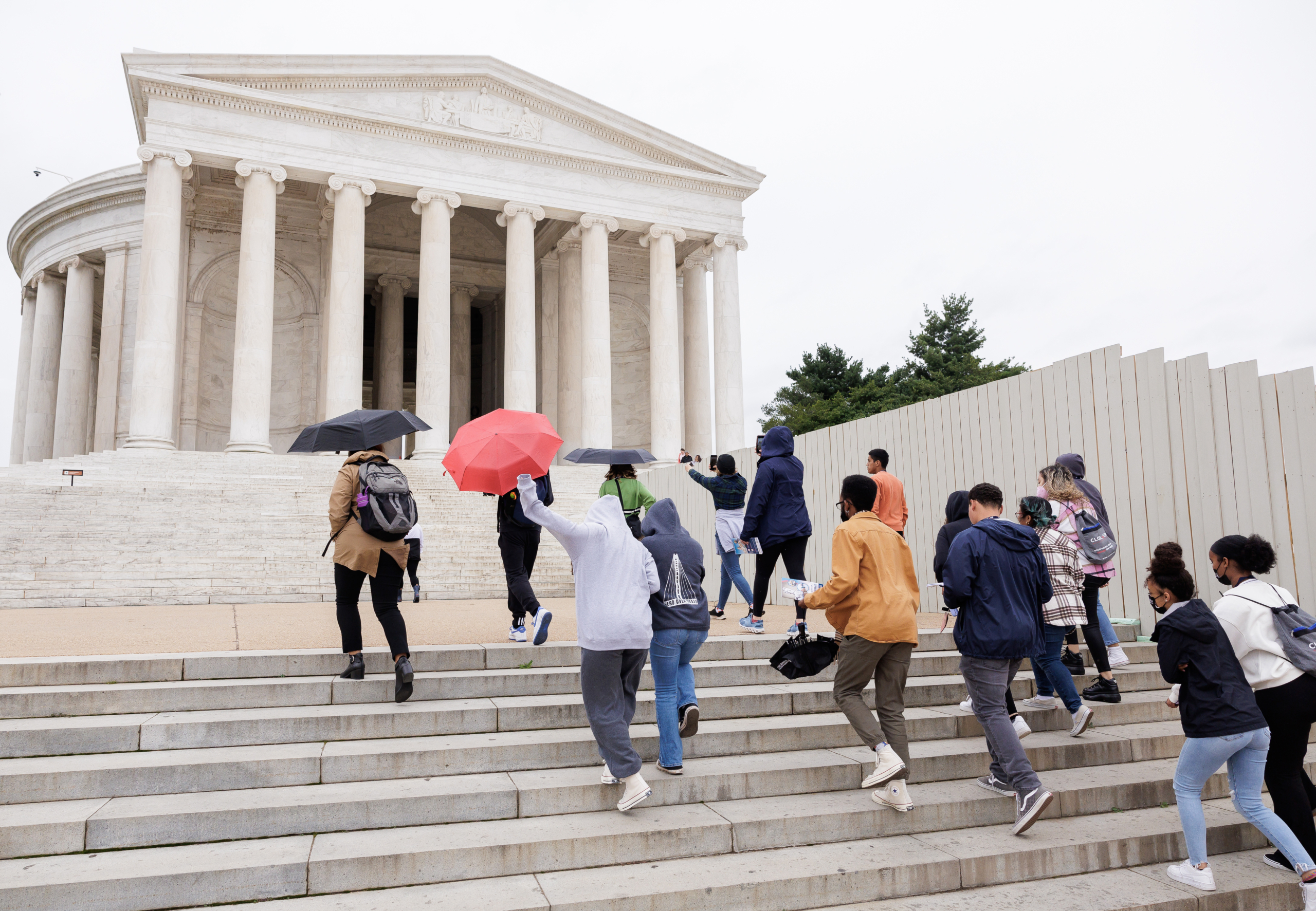Nervous about election results? You should be. Americans hardly know anything about civics

While we wait for the final votes to be tallied on this Election Day, here’s a question: Can you name the three branches of government? If so, then congratulations. You’re part of the 56% of American adults who could do the same when asked in a 2021 survey conducted by the Annenberg Public Policy Center at the University of Pennsylvania. The survey also found that 20% of the country couldn’t even name one branch.
To say the United States is suffering from a civic education deficit is an understatement.
Why are we so bereft of basic civic knowledge? Because hardly any civic education is being taught in our nation’s schools and what is being taught isn’t being retained.
According to a 2018 assessment from the National Assessment of Educational Progress, only 24% of eighth-graders surveyed score as “proficient” on basic civic education principles, such as separation of power and the branches of government. It’s a level of achievement that has largely held since 1998. Things don’t get much better in high school with most states only requiring half a semester of civic education. Eleven states have no requirement.
Compounding the problem of the lack of civic education in schools is what some political scientists call the rise of “civic deserts” — communities in the country that lack places for discussing issues, addressing problems together and forming relationships of mutual support. According to a 2017 report from the National Conference on Citizenship, 60% of rural youth in the country perceived themselves to live in a civic desert — unable to participate meaningfully in a civic life.
If children don’t have civic opportunities where they live and we aren’t teaching them the fundamentals of democracy, then how can we expect them to protect it as adults?
In order to instill future generations with a strong civic education, we need to prioritize funding it. Currently, that’s not happening. Each year, from 2010 to 2016, the federal government spent $2.95 billion on science, technology, engineering and math education. Compare that to civic education, which in 2020, for example, received just $4 million in federal funding. With that kind of disparity, it’s no wonder Americans know so little about how our country functions. This June, bipartisan legislation was introduced in the Senate to invest $1 billion in educational programs in civics education and history but there’s no guarantee that the proposed legislation will move forward.
The good news is that states and cities do not need to wait on federal funding to start improving civic education. Here in California, several nonprofits are already modeling how to make targeted and impactful interventions to improve civic education.
iCivics, the preeminent provider of civic learning tools and curricula, recently launched a pilot project in California to select 20 “master teachers” to become experts in inquiry-based civic education. As part of the project’s plan, these teachers will then return to their communities and train 30 additional teachers. The compounding impact of the project will provide thousands of students across the state with the tools to become engaged citizens.
Likewise, Creating Citizens — a new initiative from the Commonwealth Club in San Francisco, the nation’s largest and oldest public affairs forum — is leveraging 120 years of expertise to train educators and impart knowledge of civics to people across generations.
Recognizing that digital literacy is a key component of civic education today, Common Sense Education has piloted a program to help students think critically on topics that cut across news and civics in a way that combats disinformation and promotes a deeper sense of civic engagement. KQED, the Bay Area’s PBS and NPR member station, created a Media Academy to enhance educator confidence and competence to teach media literacy skills in the classroom.
All of these nonprofits have stepped up to fill a critical need at the local level and deserve philanthropic and community support.
While the country waits for the outcome of Election Day, one thing remains clear: We need more civic education. As a society, it is our responsibility to prepare the next generation to fight for and uphold our democratic ideals. While we may never agree on what to think, we can still teach our children how to think.
Our democracy only functions when each and every one of us participates. Civic education in schools ensures that our youngest citizens are ready to take on that responsibility.
Ashley Rodwick is a senior program officer at the Koret Foundation, a San Francisco-based private foundation committed to elevating the quality of life for all who live in the Bay Area.



